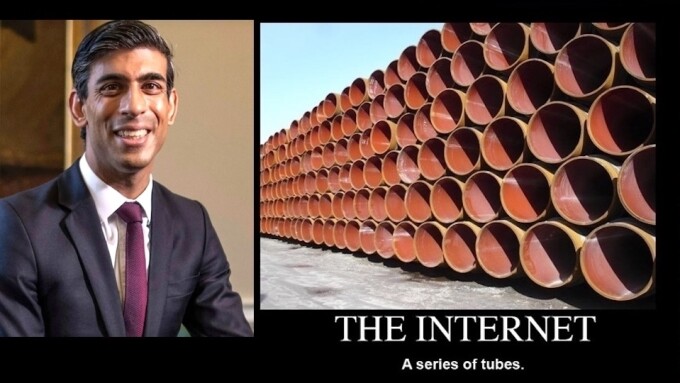LONDON — Apple has issued a statement warning against serious privacy risks that it says would result from the passage of the Online Safety Bill currently being fast-tracked by the Conservative government of Prime Minister Rishi Sunak.
After years of delays, the Sunak government has made the controversial bill a priority, seeking to hand a victory to social conservatives, religious crusaders and SWERF activists. Those groups have been conducting a moral panic campaign around “harmful content” — which for many of them include all porn — through the U.K. media, marketing the bill as a “save the women and children” measure while disregarding or minimizing privacy and technical issues.
The latest version of the bill, The Guardian pointed out in November, has gone through four prime ministers and seven secretaries of state since initially being proposed in an “online harms” white paper during former PM Theresa May’s tenure.
On Tuesday, Apple sent an unequivocal statement to BBC News about the privacy issues that the bill would present.
“End-to-end encryption is a critical capability that protects the privacy of journalists, human rights activists, and diplomats,” an Apple rep told BBC News. “It also helps everyday citizens defend themselves from surveillance, identity theft, fraud, and data breaches. The Online Safety Bill poses a serious threat to this protection, and could put UK citizens at greater risk.”
A 'Big Brother' Law in Orwell's Own Country
According to a Gizmodo report about Apple’s statement, “If the bill is put in place, the government said it will use technology to gain access to encrypted messages to search for child abuse content, but tech experts claim the messages would need to be scanned before they’re sent by performing facial recognition without the user’s knowledge using client-side scanning. The technology was already developed by Apple who announced plans in 2021 to scan photos on iPhones for abusive content. The company withdrew its plans after receiving backlash from privacy advocates.”
Gizmodo quoted a statement from British security and private expert Dr. Yves-Alexandre de Montjoye, who noted that the bill could lead to the installation of software to counter sharing CSAM — and that such software “could be built or tweaked to include other hidden features such as scanning private content from the phones of hundreds of millions of people using facial recognition, the same technology used at airport gates.”
WhatsApp and Signal have already indicated that they may withdraw from the U.K. market if the bill is passed.
A Weak Prime Minister Amidst Conceptual Chaos
For months, members of the ruling Conservative Party have pressured Sunak to strengthen the Online Safety Bill by increasing liability for platforms hosting adult content. Bloomberg reported in January that anti-porn Tory MPs threatened a rebellion that “prompted Sunak to cave in to demands for Big Tech directors to face jail if they fail to remove harmful content.”
As XBIZ reported, the Online Safety Bill has been stuck in conceptual chaos since its very beginnings, juggling various unclear goals such as “protecting children,” “outlawing hate speech,” “cleaning up the internet” and other fuzzy notions popularized through various media panics concerning online content.
The Online Safety Bill has been universally criticized by free speech and digital rights advocates for its arbitrary and expansive definition of what constitutes “harmful content.” More moderate members of the Conservative Party have also criticized the bill for its potential to erode freedom of expression and privacy.
Main Image: U.K. Prime Minister Rishi Sunak, and a series of tubes.







